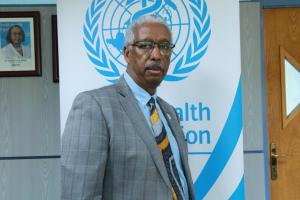The right to health for all people means that everyone should have access to comprehensive health services without suffering financial hardship
Today, Uganda joins the rest of the world in commemorating World Health Day with the theme "My health, my right". This theme highlights that the enjoyment of the highest attainable standard of health is a fundamental right of every human being irrespective of race, religion, political belief, economic or social condition. The right to health for all people means that everyone should have access to the health services they need, when and where they need them, without suffering financial hardship. This year's theme is timely, as we are six years to reviewing our progress towards achieving universal health coverage.
In collaboration with key partners and despite the threats posed by public health and humanitarian emergencies and the economic conditions, our efforts over the past decade have contributed to helping Uganda strengthen its health system and guarantee its population's access to integrated and people-centered essential health services.
Uganda's history in health is rooted in the fight against epidemics, the containment of outbreaks, and the implementation of evidence-based interventions to improve the health and well-being of the population. Thanks to the leadership of the Government of Uganda and the joint efforts of development and implementing partners, the health sector indicators have progressively improved.
Uganda has recorded a reduction in maternal and infant mortality. Specifically, between 2016 and 2022, maternal mortality declined from 336 to 189 deaths per 100,000 live births, under-five mortality dropped from 64 to 52 per 1,000 live births, infant mortality decreased from 43 to 36 per 1,000 live births, and neonatal mortality dropped from 27 to 22 per 1,000 live births. We will continue to step up our efforts in this area to ensure that all newborn babies and mothers enjoy their right to life, including at the grassroots level.
Furthermore, new HIV infections fell by 40% between 2010 and 2022, and the goal of reducing the burden of non-communicable diseases is being accelerated by the recently adopted Compact on Non-Communicable Diseases. This Compact aims to save lives, prevent disease, and reduce the effects of climate change while advancing health equity.
In addition, WHO and partners supported the country in fighting the COVID-19 pandemic and interrupting the transmission of the Ebola virus disease in a record time of 69 days. We could only achieve these remarkable results because of the strong leadership within the health sector, a whole government and community approach, and the dedication of the frontline health workers who supported the response efforts at various levels. We will continue to partner with the Government of Uganda in raising awareness of diseases with epidemic potential and to ensure a robust surveillance system for early case detection and management.
While the above progress is commendable, further efforts are needed to ensure that every person in Uganda has access to integrated and people-centred health services. Implementing the existing public health policies, strategies, and guidelines, improving efficiency in the use of resources, and promoting community empowerment and participation will accelerate Uganda’s progress towards achieving universal health coverage.
By Dr. Yonas Tegegn Woldemariam, WHO Representative to Uganda
Communications Officer
WHO Uganda
Email: tcheutchouae [at] who.int (tcheutchouae[at]who[dot]int)
Communications Associate
WHO Uganda Country Office
Email: afwcougcom [at] who.int (afwcougcom[at]who[dot]int)
Phone: +256740487734
